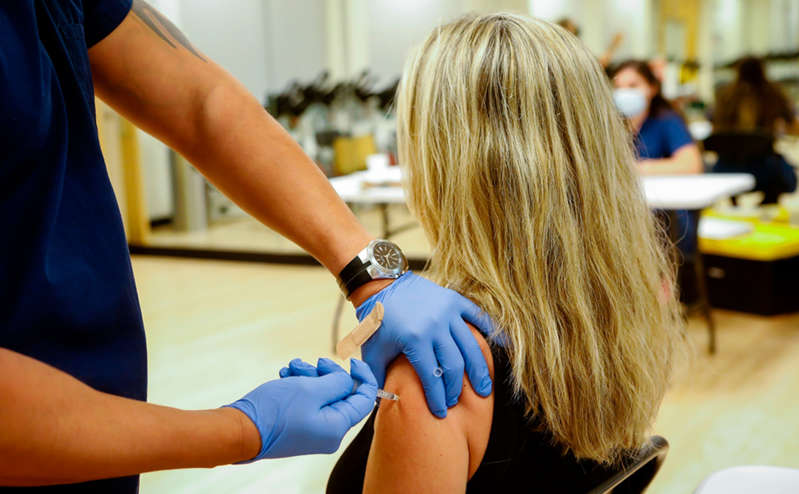
The risk of blood clots due to vaccination against the coronavirus COVID-19 is lower than the risk of these consequences after contracting the virus, researchers at the University of Oxford have found. The experts' findings were published on the university's website on Friday, August 27th. More detailed results of the study are published in a scientific article in the British Medical Journal (BMJ).
“People need to be aware of these increased risks after being vaccinated against COVID-19 and seek prompt medical attention if they develop symptoms. In doing so, they should also be aware that these […] risks [of negative consequences] are much higher […] in case of infection with [coronavirus] SARS-CoV-2, ”said Julia Hippisley-Cox, professor of epidemiology at Oxford University and lead author of the article.
During the study, scientists analyzed data from 29 million people vaccinated with the first dose of drugs from Pfizer / BioNTech and AstraZeneca. They have identified an increased risk of negative consequences, including blood clots, which can lead to hospitalization or death. “The study demonstrates an increased risk of thrombocytopenia and venous thromboembolism due to [vaccination] with ChAdOx1 nCoV-19 [AstraZeneca vaccine], as well as an increased risk of arterial thromboembolism following BNT162b2 mRNA vaccination [Pfizer / BioNTech],” the study states.
Despite the threat of blood clots due to vaccination, the researchers nevertheless believe that the chances of such complications occurring are “very small” and urge people to get vaccinated against the coronavirus. “To summarize, this study highlights the importance of vaccination to reduce the risk of blood clots […],” said Aziz Sheikh, a professor at the University of Edinburgh and co-author of the study, adding that blood clots are more common after COVID-19 than after vaccination. … In addition, if cardiovascular diseases develop in vaccinated people only a few days after receiving the first dose of the drug, patients with coronavirus may develop these diseases for a longer period of time.

